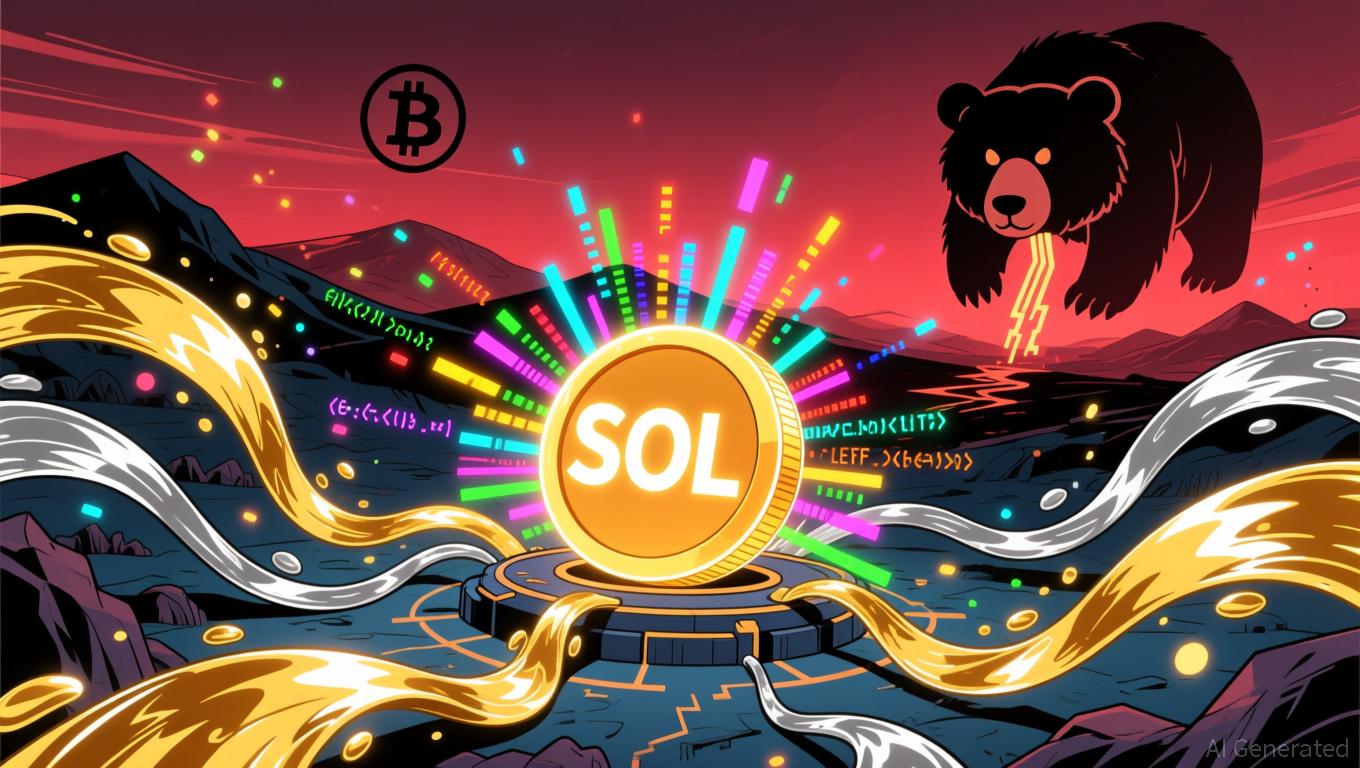Trademark Dispute: OpenAI's 'Cameo' Restriction Sheds Light on Legal Challenges in AI
- U.S. Judge Eumi K. Lee temporarily banned OpenAI from using "Cameo" in its Sora app until December 22, citing trademark infringement by Chicago-based Cameo. - Cameo argued the term caused consumer confusion, with users contacting them about Sora's feature, highlighting brand overlap since 2017. - OpenAI contested the ruling, claiming "cameo" is generic, mirroring its legal strategy in India and facing broader IP lawsuits from authors and publishers. - The case underscores AI companies' legal risks, with
OpenAI has been ordered by a federal judge to stop using the name "Cameo" in its Sora AI video-generation platform for the time being, representing a notable legal blow for the AI leader. On November 22, U.S. District Judge Eumi K. Lee issued a temporary restraining order that blocks OpenAI from referencing "Cameo," as well as similar terms such as "Kameo" or "CameoVideo," in relation to Sora's offerings until December 22
The conflict began after OpenAI rolled out a Sora feature in September that enabled people to make AI-powered videos using digital avatars of themselves or others
This temporary order presents an immediate challenge for OpenAI as it expands Sora, which is already popular for generating viral videos. The "Cameo" feature in Sora, which lets users add AI-created likenesses to their videos, has driven millions of downloads

OpenAI has pushed back against the court's decision, arguing that "cameo" is a common term and not exclusive to Cameo. "
This legal battle highlights the uncertain regulatory environment for AI firms releasing products for the public. Judge Lee has scheduled a hearing for December 19 to decide if the restriction on using "Cameo" should be extended
Disclaimer: The content of this article solely reflects the author's opinion and does not represent the platform in any capacity. This article is not intended to serve as a reference for making investment decisions.
You may also like
Solana News Update: Institutions Seize the Dip as Solana ETFs Withstand Crypto Market Slump
- Solana ETFs attract $476M in inflows despite crypto market slump, led by Bitwise's BSOL with 89% share. - Institutional investors "buy the dip" as SOL price drops 36%, contrasting Bitcoin ETF outflows of $1.1B. - 21Shares and VanEck launch low-fee spot Solana ETFs, expanding institutional adoption amid bearish price trends. - CME's new SOL/XRP spot futures and regulatory clarity signal growing infrastructure for altcoin exposure. - Analysts forecast over 100 crypto ETFs by 2026, with Solana's staking yie

Bitcoin Updates Today: JPMorgan's Bitcoin Report: Is a Doubter Taking a Chance as Crypto Goes Mainstream?
- JPMorgan Chase launches a Bitcoin-ETF-linked note offering up to 16% returns with principal protection under specific conditions. - The product reflects traditional finance's crypto shift, mirroring rivals' innovations and capturing exposure without direct asset ownership. - It carries risks of principal loss if Bitcoin underperforms and sparks controversy over crypto account closures and forced selling warnings. - Bitcoin's valuation now depends on offchain factors like ETF holdings and macroeconomic tr
XRP News Today: XRP ETFs Drive Expansion, Yet Fluctuations and Large Holder Sell-Offs Present Challenges
- U.S. approval of XRP ETFs has driven $423M in institutional inflows, outpacing Bitcoin and Ethereum ETFs. - Bitwise and Franklin Templeton's low-fee XRP ETFs now dominate trading, with whale sales and market volatility tempering price gains. - XRP tests $2 support level amid 41.5% of supply in losses, with analysts predicting parabolic growth if resistance breaks. - Ripple's staking features and ODL expansion, plus Grayscale's trust-to-ETF conversion, signal long-term utility-driven demand. - Regulatory
Solana News Today: Solana's Inflation Reform Could Threaten Validator Decentralization
- Solana's governance community proposes SIMD-0411 to accelerate inflation reduction to 1.5% by 2029, halving the timeline from six to three years. - Institutional backer DFDV supports the plan, arguing current inflation rates misalign with growing user activity and DeFi throughput. - Faster disinflation could reduce token supply growth by $2.9B over six years but risks validator centralization as staking rewards drop from 6.41% to 2.42%. - Market analysts link the proposal to Solana's $136 price recovery